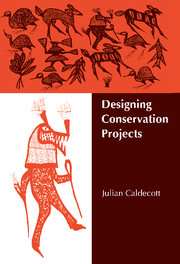Book contents
- Frontmatter
- Contents
- Foreword by Daniel H. Janzen
- Preface
- Acknowledgements
- 1 Introduction
- 2 Baram River, Sarawak
- 3 Cross River, Nigeria
- 4 Siberut and Flores Islands, Indonesia
- 5 Forest fragments in China and the Philippines
- 6 Costa Rican linkage projects
- 7 Irian Jaya, Indonesian New Guinea
- 8 Project themes and practicalities
- 9 Options for conservation
- 10 Options for development
- 11 Options for changing people's minds
- 12 Summary and conclusions
- Glossary
- Bibliography
- Index
Foreword by Daniel H. Janzen
Published online by Cambridge University Press: 04 February 2010
- Frontmatter
- Contents
- Foreword by Daniel H. Janzen
- Preface
- Acknowledgements
- 1 Introduction
- 2 Baram River, Sarawak
- 3 Cross River, Nigeria
- 4 Siberut and Flores Islands, Indonesia
- 5 Forest fragments in China and the Philippines
- 6 Costa Rican linkage projects
- 7 Irian Jaya, Indonesian New Guinea
- 8 Project themes and practicalities
- 9 Options for conservation
- 10 Options for development
- 11 Options for changing people's minds
- 12 Summary and conclusions
- Glossary
- Bibliography
- Index
Summary
Julian Caldecott has done what many of the conservation veterans should do, but almost none do. He has taken time off to reflect and put his experiences down in what is more than a very readable book. This is a ‘must read’ book. It is the human ecology of seven tropical attempts to set up nature reserves with sufficient size, social connection, and sustainability to have a serious chance of surving into perpetuity. Federal versus States' rights and demands. Rural dwellers versus central governments. The natural history of poverty and wealth. Dynamics of humans in the harvest of ‘wild’ organisms from the wildland crop. Dictatorships versus democracies at all scales. Who owns it, me or you? Who is allowed to buy it? Who is allowed to write about it? This is the arena in which tropical conservation occurs, and it is the dynamic of this arena that will determine whether we still have any sustainable remnant of tropical wildland biodiversity 100 years from now.
This book should be read by all mid-level management in natural resources: a look in the mirror. This book should be read by the tropical ruling class: see what tugs at them. This book should be read by the work-aday folks: see what swirls around them. The stories are told from the viewpoint of a sergeant and lieutenant, in the language of communication rather than as an academic study. This is a book for wildland policy makers from farmer to president: they all make policy, just at different scales.
- Type
- Chapter
- Information
- Designing Conservation Projects , pp. xiii - xviPublisher: Cambridge University PressPrint publication year: 1996



